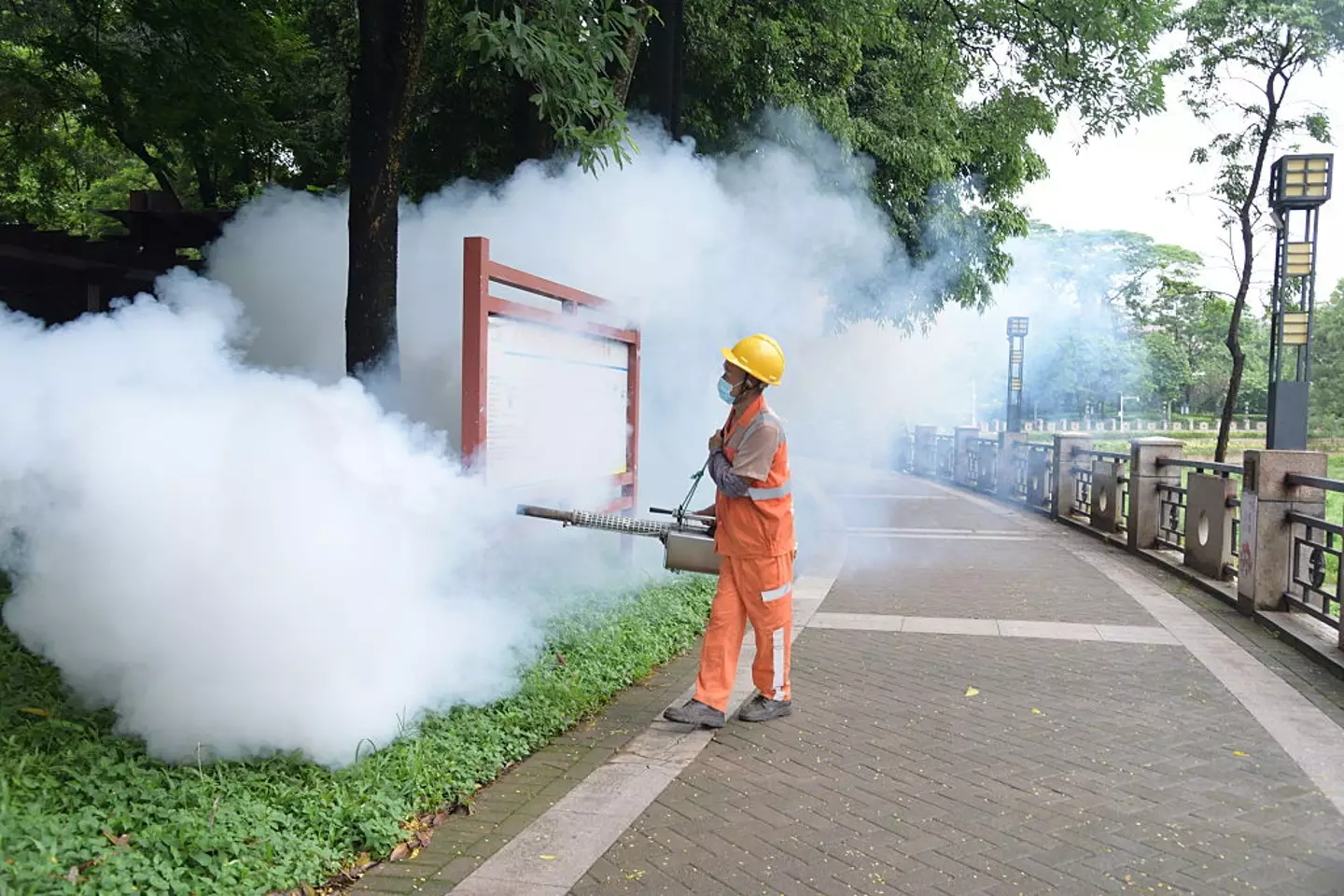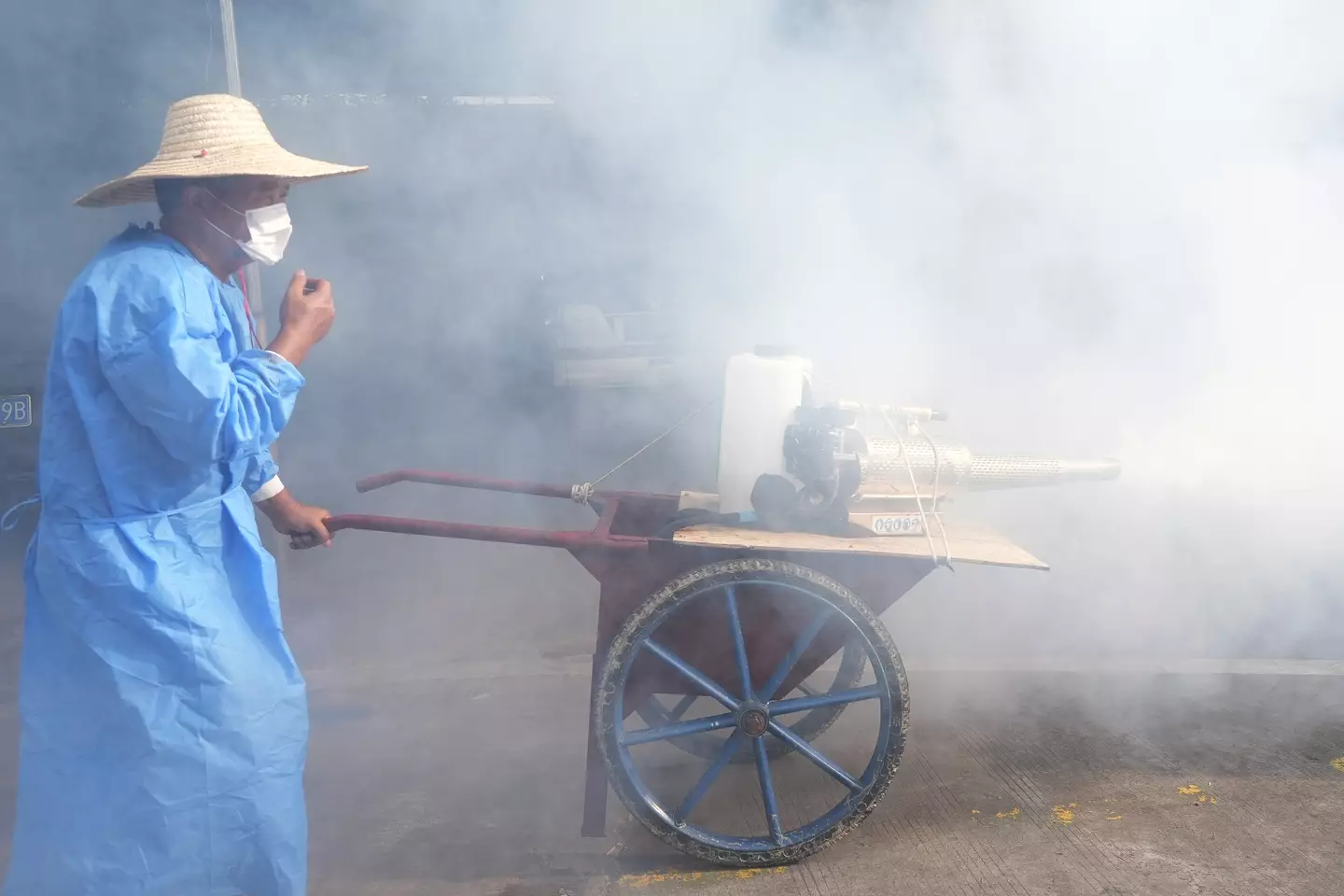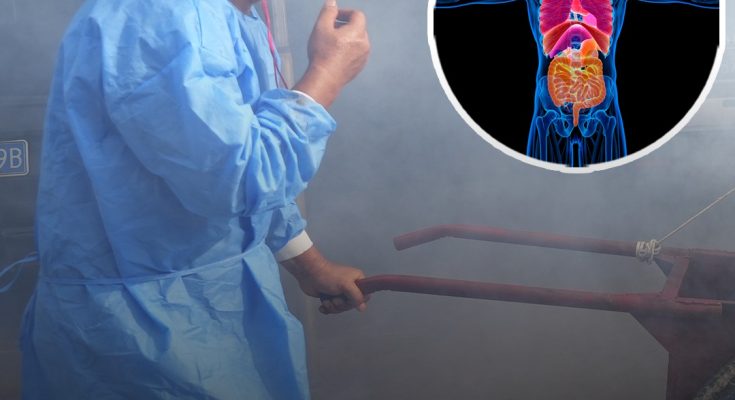All the symptoms for Chikungunya virus have been outlined
This might seem all too familiar to us, but China has started to implement ‘pandemic measures’ in response to a new virus.
No need to pinch yourself, it’s not 2020 again, but the nation has stated their intent to take ‘forceful and decisive measures’ to combat the Chikungunya virus (CHIKV).
There have been over 7,000 reported cases across the Guangdong area in the south of China, which may give people some flashbacks to Covid.
The city of Foshan has felt the brunt of it, though almost 3,000 cases have been reported in the last week.
It’s a major health worry for authorities, as 12 other cities in addition to Foshan have reported cases of the virus.
Hong Kong also reported its first case yesterday (4 August) as a 12-year-old started to develop symptoms.
So, what is Chikungunya virus and what are its main symptoms?


The virus is worrying many around the world who wonder if a second COVID is on the way (VCG/VCG via Getty Images)
How is Chikungunya virus spread?
It is a mosquito-borne disease which is transmitting to humans through the bites of mosquitoes.
They do come from a specific species of mosquitoes though, the Aedes mosquitoes.
These pesky insects are also responsible for spreading other viruses such as dengue fever, yellow fever, and Zika virus.
While outbreaks are common in regions of South and South East Asia, they can also occur in Africa.
Viruses cannot spread from person to person, and though rarely fatal, some symptoms can persist for years.
According to the BBC, outbreaks of the Chikungunya virus have been reported in 110 countries.
What are the symptoms of Chikungunya virus?
According to the World Health Organization, CHIKV disease onset is typically four to eight days long following the bite of an infected mosquito.
It can be identified with the sudden onset of fever, along with serious joint pain, which usually lasts for a number of days.
However, the debilitating pain can last weeks, months, or even years.
Here are some of the other common signs to look out for:
- Joint swelling
- Muscle pain
- Headache
- Nausea
- Fatigue
- Rash
These can overlap with other infections, such as those with dengue fever and Zika viruses.
However, cases can be misdiagnosed, especially in the absence of severe joint pain, as symptoms can appear mild with CHIKV going largely unnoticed.
Do Chikungunya virus patients typically recover?


The Chikungunya virus is spreading across China (VCG/VCG via Getty Images)
While most patients fully recover from CHIKV, eye, heart and neurological complications can persist with the infection.
Extremely young or old patients are at higher risk for severe diseases linked to the disease.
Specifically, newborns infecting during delivery to infected mothers, or older people with existing health issues.
In severe cases, patients would require hospitalization.
What are Chinese authorities doing about Chikungunya virus?
Patients in Foshan in particular are being kept in hospital with mosquito nets around their beds until they test negative or reach seven days from initial infection.
Chinese nationals are encouraged to visit a hospital if they suspect any symptoms, while they have also been advised to remove stagnant water from their homes or risk being fined up to 10,000 yuan ($1,400).



